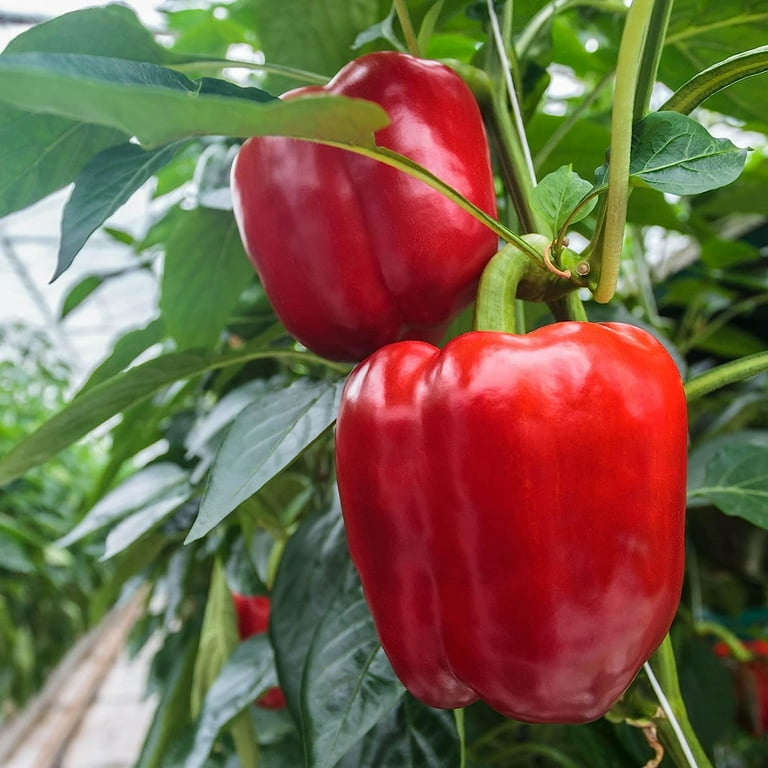Organic Vs. Synthetic Fertilizers: Which Is Best for Nurturing Healthy Pepper Plants?
In the realm of nurturing healthy pepper plants, the choice between natural and artificial plant foods stands as a pivotal decision with far-ranging effects. While both alternatives purpose to give crucial nutrients to sustain plant growth, the subtleties of their influence on the soil, plant health, and the environment trigger a discussion that mirrors throughout the horticulture neighborhood. Understanding the distinct benefits and prospective mistakes of each plant food kind is important for pepper growers seeking to maximize their yields while maintaining an eco-conscious and lasting technique.
Benefits of Organic Plant Foods
Organic plant foods use a sustainable and environmentally-friendly method to beneficial pepper plants, offering crucial nutrients without the use of artificial chemicals. These natural plant foods are stemmed from natural sources such as garden compost, manure, bone meal, and algae, advertising soil wellness and biodiversity. Unlike synthetic plant foods, organic alternatives release nutrients slowly, ensuring a constant and balanced supply for pepper plants to thrive.
One considerable benefit of natural fertilizers is their capability to boost dirt structure and water retention. By improving dirt wellness, organic fertilizers advertise beneficial microbial activity, which helps in nutrient uptake by pepper plants. In addition, organic fertilizers lower the risk of chemical run-off, securing water sources from pollution and securing the environment.
Additionally, organic fertilizers add to long-lasting dirt fertility by advertising the development of beneficial soil organisms. These organisms assist damage down raw material, launching nutrients in a kind that is conveniently accessible to pepper plants. best fertilizers for peppers. By fostering a healthy and balanced dirt ecosystem, organic plant foods sustain sustainable pepper cultivation methods that benefit both plants and the environment
Disadvantages of Artificial Plant Foods
Synthetic fertilizers, in comparison to their organic equivalents, posture numerous negative aspects when made use of to nurture pepper plants, affecting both plant health and wellness and environmental sustainability. One significant drawback of artificial fertilizers is their tendency to seep nutrients from the dirt swiftly.
Additionally, the overuse of synthetic fertilizers can add to water air pollution. Excess plant foods not taken in by plants can clean away right into water bodies, leading to eutrophication, where algae blooms diminish oxygen levels in the water, damaging water life. Artificial fertilizers are normally derived from non-renewable resources, such as fossil fuels, contributing to carbon exhausts and ecological destruction during their production.
Nutrient Absorption Contrast
When contrasting natural and synthetic fertilizers in terms of nutrient absorption, organic fertilizers have the benefit of supplying an extra balanced and slow-release source of nutrients. Organic fertilizers consist of a selection of macro and trace elements that are not only valuable for the plants yet likewise promote healthy dirt microbial activity, which helps in nutrient uptake.
Additionally, natural plant foods improve dirt framework and water retention capability, permitting pepper plants to access nutrients extra efficiently. This improved soil quality helps with origin advancement, allowing much better nutrient absorption. Synthetic fertilizers, although initially increasing plant growth because of their high nutrient focus, may hinder long-lasting nutrient absorption by derogatory soil wellness with time.
Ecological Impact Factors To Consider

On the other hand, artificial fertilizers, although frequently even more promptly readily available and concentrated to plants, can have damaging impacts on the atmosphere if not applied appropriately (best fertilizers for peppers). Their production requires high power inputs, resulting in greenhouse gas discharges and contributing to climate change. The drainage of excess synthetic fertilizers can infect water sources, leading to eutrophication and hurting marine ecosystems.
Finest Plant Food Practices for Peppers
To accomplish this, it is vital to comply with best plant food techniques customized to the details demands find here of pepper plants. One critical technique is to do a dirt test before using any kind of plant foods.
One more essential practice is to fertilize pepper plants at the correct time. Commonly, peppers gain from getting fertilizer at planting and after that once more when they start to flower. Over-fertilizing can lead to vitamins and mineral discrepancies and hurt the plants, so it is vital to adhere to advised application rates.
Additionally, picking a well balanced fertilizer with an NPK proportion that fits pepper plants' needs is basic. Organic plant a fantastic read foods, such as garden compost or manure, can be superb selections as they launch nutrients gradually and boost dirt structure over time. Synthetic fertilizers can offer a quick nutrient boost when needed. Inevitably, incorporating artificial and organic plant foods try these out sensibly can help nurture healthy and balanced pepper plants while decreasing ecological effect.
Conclusion

Organic fertilizers use an environmentally-friendly and sustainable technique to beneficial pepper plants, offering essential nutrients without the use of artificial chemicals. Unlike artificial plant foods, organic choices launch nutrients gradually, ensuring a well balanced and consistent supply for pepper plants to grow.
Artificial fertilizers, in contrast to their organic counterparts, present numerous disadvantages when used to nourish pepper plants, affecting both plant health and wellness and ecological sustainability. When contrasting artificial and natural plant foods in terms of nutrient absorption, organic fertilizers have the advantage of providing a much more balanced and slow-release source of nutrients.Furthermore, natural plant foods improve soil structure and water retention capability, enabling pepper plants to gain access to nutrients much more effectively.